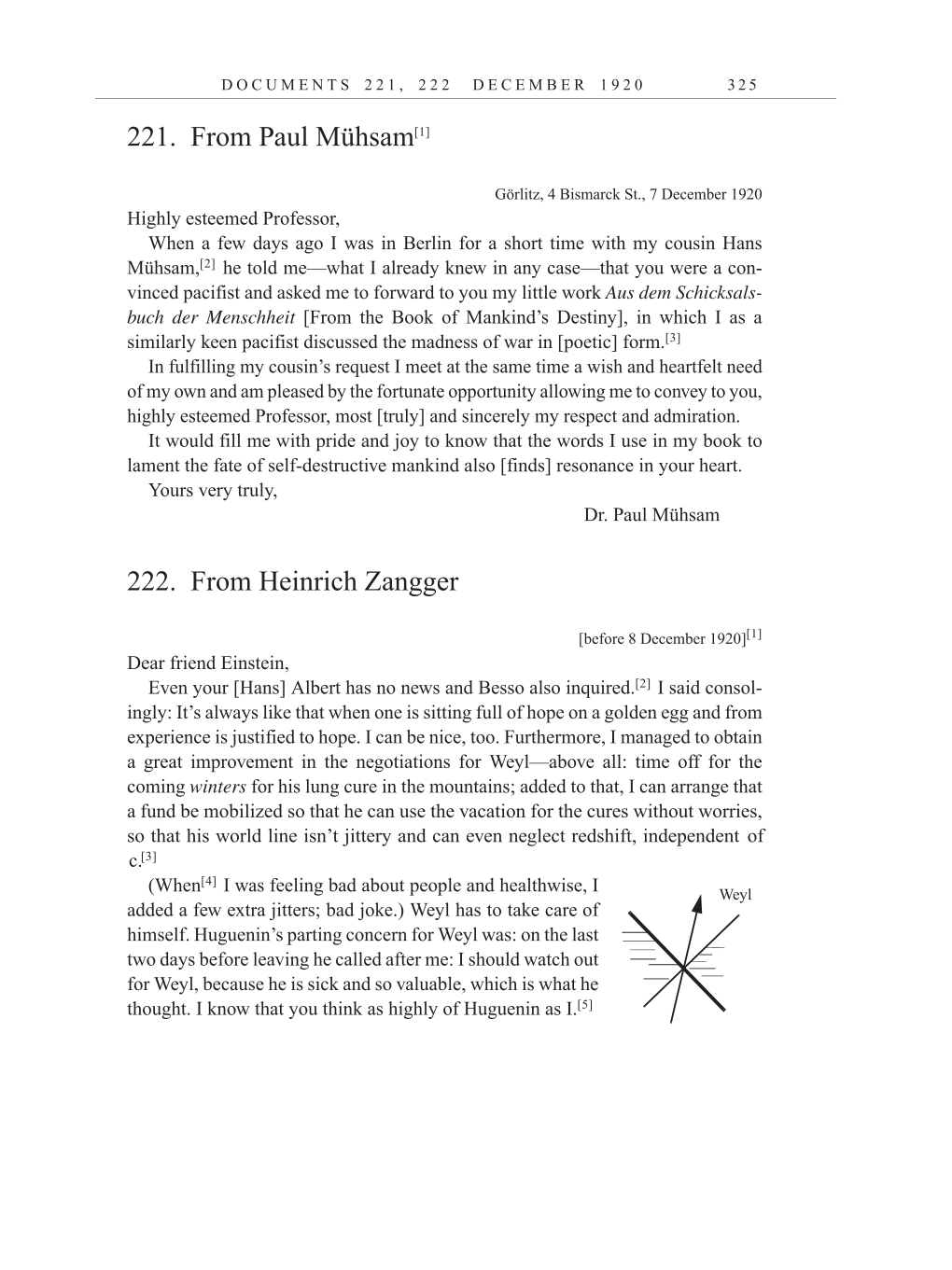D O C U M E N T S 2 2 1 , 2 2 2 D E C E M B E R 1 9 2 0 3 2 5
221. From Paul Mühsam[1]
Görlitz, 4 Bismarck St., 7 December 1920
Highly esteemed Professor,
When a few days ago I was in Berlin for a short time with my cousin Hans
Mühsam,[2]
he told me—what I already knew in any case—that you were a con-
vinced pacifist and asked me to forward to you my little work Aus dem Schicksals-
buch der Menschheit [From the Book of Mankind’s Destiny], in which I as a
similarly keen pacifist discussed the madness of war in [poetic]
form.[3]
In fulfilling my cousin’s request I meet at the same time a wish and heartfelt need
of my own and am pleased by the fortunate opportunity allowing me to convey to you,
highly esteemed Professor, most [truly] and sincerely my respect and admiration.
It would fill me with pride and joy to know that the words I use in my book to
lament the fate of self-destructive mankind also [finds] resonance in your heart.
Yours very truly,
Dr. Paul Mühsam
222. From Heinrich Zangger
[before 8 December
1920][1]
Dear friend Einstein,
Even your [Hans] Albert has no news and Besso also
inquired.[2]
I said consol-
ingly: It’s always like that when one is sitting full of hope on a golden egg and from
experience is justified to hope. I can be nice, too. Furthermore, I managed to obtain
a great improvement in the negotiations for Weyl—above all: time off for the
coming winters for his lung cure in the mountains; added to that, I can arrange that
a fund be mobilized so that he can use the vacation for the cures without worries,
so that his world line isn’t jittery and can even neglect redshift, independent of
c.[3]
(When[4]
I was feeling bad about people and healthwise, I
added a few extra jitters; bad joke.) Weyl has to take care of
himself. Huguenin’s parting concern for Weyl was: on the last
two days before leaving he called after me: I should watch out
for Weyl, because he is sick and so valuable, which is what he
thought. I know that you think as highly of Huguenin as
I.[5]
Weyl
